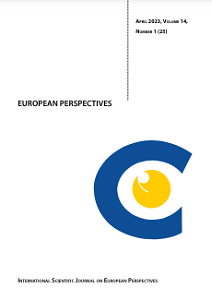
Ajša Hafizović-Hadžimešić - On The Side of Humanity
Review of: Ajša Hafizović-Hadžimešić: “On The Side of Humanity”, Association Pokret Majke enklava Srebrenica i Žepa, Sarajevo, 2021, 390 pages, ISBN 978-9926-8091-8-8
More...We kindly inform you that, as long as the subject affiliation of our 300.000+ articles is in progress, you might get unsufficient or no results on your third level or second level search. In this case, please broaden your search criteria.

Review of: Ajša Hafizović-Hadžimešić: “On The Side of Humanity”, Association Pokret Majke enklava Srebrenica i Žepa, Sarajevo, 2021, 390 pages, ISBN 978-9926-8091-8-8
More...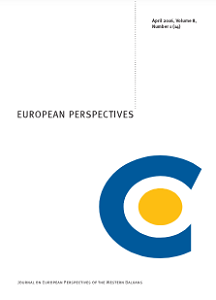
The Schengen ‘wall’ that had kept the Western Balkans and the Republic of Macedonia casted out from the EU mainland was removed in 2009. Symbolically it coincided with St. Nicholas Day i.e. the celebration of the patron of children and travellers. The paper examines the effects of the visa liberalisation and the effects that may follow in case the newly adopted suspension mechanism is fully implemented. The basic assumption is that visa liberalization served as a ‘carrot’ to move forwards the EU integration process while the suspension mechanism is more of a disciplinary measure (the ‘stick’) but also an indication of a securitized migration policy. The paper underlines how visa liberalization has affected the governments’ treatment of the ‘bogus’ asylum seekers (mostly citizens of Roma and Albanian origin). The research question concerns the trade-off that national governments have made in order to preserve the visa liberalization and the impact in terms of human rights and discriminatory policies.
More...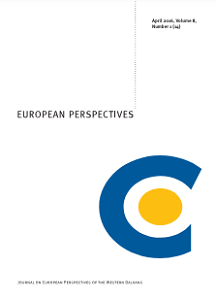
European Union (EU) has since the beginning tried to develop its military and defence capabilities independently from NATO. It was not until 1991 and with the deterioration of situation in the former Yugoslav republics when EU and EU's public was forced to face the truth and admit EU's incompetence and inability to play a more decisive role in securing peace and stability. With the development of Common Foreign and Security policy (CFSP), and Common Security and Defence Policy (CSDP) EU has started to become a more decisive actor also in the field of international peace and security. During the times, EU has learned its future is not in playing a competitive role towards NATO, but in strong partnership and cooperation. Article identifies and analyses current possibilities for EU as a strong(er) actor in international peace and security. To reach this goal, historical circumstances for the development of EU military and defence capabilities are analysed. Current situation and major defectiveness of EU's military and defence capabilities are identified, with emphasize on role of NATO. Article identifies some major obstacles for the development of stronger defence and military capabilities in the future.
More...
The journal is structured into sections that reflect current issues in various fields, as follows: International Law, Public Law, Private Law, and Criminal Sciences. The journal continues to promote the innovative element implemented in previous issues — within the respective sections, doctoral students are admitted, the criterion being the completion of doctoral studies and the finalization of the thesis, including the initiation of the defense procedure. This exception confirms the high level of research of the doctoral students. Equally, this rule is applied to experts whose studies are of interest, especially for practitioners. Promoting the idea of supporting young scientific researchers, the journal contains a special section called 'Doctoral Tribune,' where they have the opportunity to publish their research results, with the works being reviewed by experts in the field.
More...
The journal is structured into sections that reflect current issues in various fields, as follows: International Law, Public Law, Private Law, and Criminal Sciences. The journal continues to promote the innovative element implemented in previous issues — within the respective sections, doctoral students are admitted, the criterion being the completion of doctoral studies and the finalization of the thesis, including the initiation of the defense procedure. This exception confirms the high level of research of the doctoral students. Equally, this rule is applied to experts whose studies are of interest, especially for practitioners. Promoting the idea of supporting young scientific researchers, the journal contains a special section called 'Doctoral Tribune,' where they have the opportunity to publish their research results, with the works being reviewed by experts in the field.
More...
The journal is structured into sections that reflect current issues in various fields, as follows: International Law, Public Law, Private Law, and Criminal Sciences. The journal continues to promote the innovative element implemented in previous issues — within the respective sections, doctoral students are admitted, the criterion being the completion of doctoral studies and the finalization of the thesis, including the initiation of the defense procedure. This exception confirms the high level of research of the doctoral students. Equally, this rule is applied to experts whose studies are of interest, especially for practitioners. Promoting the idea of supporting young scientific researchers, the journal contains a special section called 'Doctoral Tribune,' where they have the opportunity to publish their research results, with the works being reviewed by experts in the field.
More...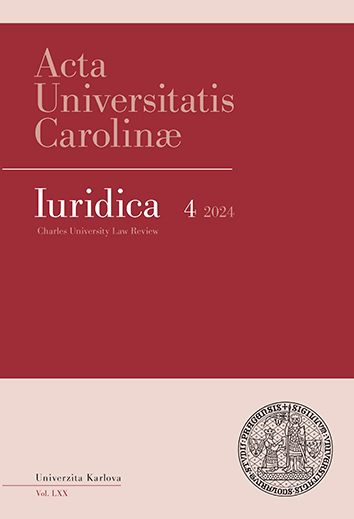
The paper deals with the environmental damage caused during the war in the Gaza Strip. The issue is mainly examined from the perspective of the international humanitarian law. The war in Gaza is perceived as an international armed conflict and thus the relevant provisions of the Additional Protocol I as well as general principles of international humanitarian law are applied. The problem is first examined from a broader point of view and deals with the effects of military operations on the environment of Gaza as a whole, explaining which parts of the environment have been damaged. Subsequently, attention is paid to two specific cases, the alleged use of white phosphorus and the flooding of the tunnels with seawater and the impacts of these actions on the environment. Because it cannot be completely ruled out, that the environmental damage in Gaza might become a matter of concern of the ICC, the environmental damage is also marginally assessed from the perspective of the international criminal law. The paper is aimed to contribute to the academic discussion on whether and under what circumstances, it would be possible to consider the examined conduct as breaching the obligations of the state carrying out the military operations.
More...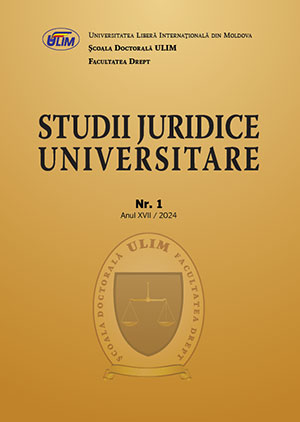
The journal is structured into sections that reflect current issues in various fields, as follows: International Law, Public Law, Private Law, and Criminal Sciences. The journal continues to promote the innovative element implemented in previous issues — within the respective sections, doctoral students are admitted, the criterion being the completion of doctoral studies and the finalization of the thesis, including the initiation of the defense procedure. This exception confirms the high level of research of the doctoral students. Equally, this rule is applied to experts whose studies are of interest, especially for practitioners. Promoting the idea of supporting young scientific researchers, the journal contains a special section called 'Doctoral Tribune,' where they have the opportunity to publish their research results, with the works being reviewed by experts in the field.
More...
The journal is structured into sections that reflect current issues in various fields, as follows: International Law, Public Law, Private Law, and Criminal Sciences. The journal continues to promote the innovative element implemented in previous issues — within the respective sections, doctoral students are admitted, the criterion being the completion of doctoral studies and the finalization of the thesis, including the initiation of the defense procedure. This exception confirms the high level of research of the doctoral students. Equally, this rule is applied to experts whose studies are of interest, especially for practitioners. Promoting the idea of supporting young scientific researchers, the journal contains a special section called 'Doctoral Tribune,' where they have the opportunity to publish their research results, with the works being reviewed by experts in the field.
More...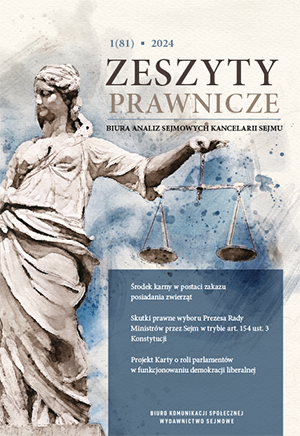
The article describes legal solutions for children and youth sports in selected European countries. The authors analyze regulations protecting children and adolescents from sexual abuse and undignified treatment. The article also specifies the actions to be taken when illegal behavior is detected, the criminal sanctions for committing crimes against minors, and the legal requirements for those who work with children and adolescents.
More...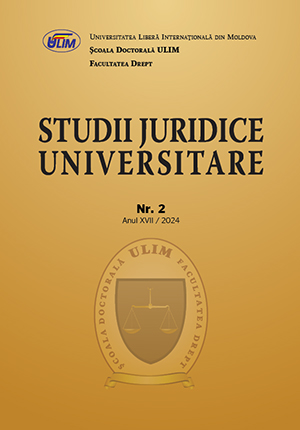
The journal is structured into sections that reflect actual problems of different legal domains, as follows: International Law, Public Law, Private Law and Criminal Sciences. 10 The magazine continues to promote the innovative element implemented in the previous issues — the aforementioned sections include the research of post-graduate students, the criterion being the finalization of the doctoral studies and completion of thesis, including the beginning of the procedure of its defense. This exception is aimed at confirmation of high level of doctoral studies. This rule is applied in the same measure to the experts, whose research presents an interest, especially for the practitioners.
More...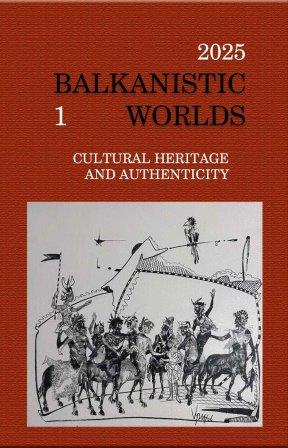
The paper aims to explore the interception between authors rights (copyrights) and cultural processes, focused in Architecture and especially in Modern Architecture. It is presented in the prism of the concept on the balance of interests in relation to Architecture/ Architectural Works: authors (individual) interests – owners (individual) interests – public interests. The collision between the interests of the author’s and owner’s interests over a certain Architectural Works is often related to its cultural (heritage) representation and the public interests embodied in the Architecture and Architectural Works. The paper presents further research the hypothesis that the individual moral rights of the authors are usually overlap with the public interests related to the cultural values and cultural heritage. Thus, the author’s rights (and especially their moral rights on reputation) may represent an important instrument regarding the protection and regulation of Architectural Cultural Heritage (and in particular of Modern Architecture).
More...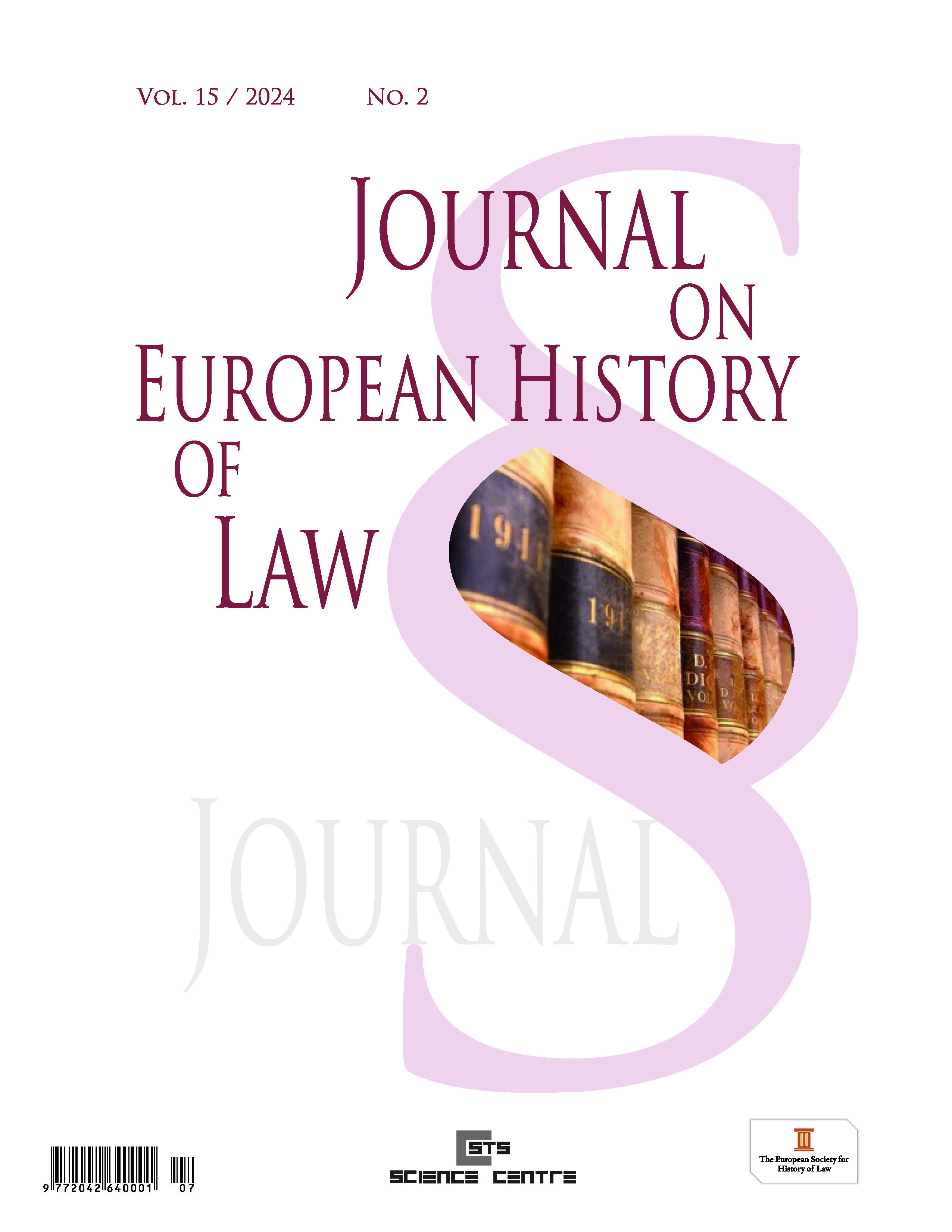
The article is devoted to the practice of applying the third regulation on restrictions on stay in the General Government of October 15, 1941 in the field of unauthorized leaving the ghetto. Initially, the anti-Jewish legislation in the General Government was discussed, including two earlier versions of the titular regulation, and then the content of the regulations of the third regulation. The most important part of the study is the analysis of the judgments of special courts and the German prosecutor's office, the aim of which was to determine the interpretation of these provisions and to determine the circumstances that supported conviction, acquittal and discontinuation. These judgments were compared with the guidelines issued by the authorities superior in the General Government.
More...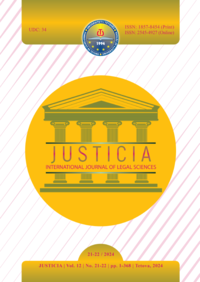
For several years now, European integration has been recognized as a key strategy to achieve dual goals in the Western Balkans: peace and stability. The European perspective is a commitment not only to the foreign policy of this region but also a great expectation of the citizens of these countries. The Western Balkans, as the European Union calls it after the integration of Bulgaria and Romania in 2007, is a political notion with more than a geographical definition. The Western Balkans, a region which includes: Albania, Bosnia and Herzegovina, Croatia, North Macedonia, Montenegro, Serbia, and Kosovo, throughout the Cold War period was the area where East and West were divided. After the fall of the communist regimes in Eastern and Southeastern Europe, which followed the signing of the Maastricht Treaty and the establishment of the European Union, euphoria and enthusiasm for joining a united Europe grew. Thus, the prospect of a common future of the Western Balkans in a democratic and prosperous Europe now seemed more than feasible. Today, the countries of the Western Balkans that have passed the transition period, still encounter the difficulties of their consolidation or the stability of bilateral agreements. Although they are located in the European continent with cultural diversity in a narrow space, they continue to remain out of place in the Euro-integration process. Economic development, commercial exchanges, investments, unemployment, etc., are another dimension of the countries of the Western Balkans, but also the initiatives of some countries for an opening within the area called a mini-Schengen, and then turned into “Open Balkan” which was specifically replaced by the “Berlin Process”, which began in 2014, as a proposal by the German Chancellor Angela Merkel to accelerate the European integration of the Western Balkan countries. The difficult economic situation combined with inherited political problems has created large discrepancies between countries of this region in relation to the benefits that come from the EU. The created situation has contributed to some states expanding and increasing their influencing power in this region, such as the influence of Russia. These issues represent some of the main points of view of the conference, which aims to bring together researches from the countries of the region to present their studies and views on the issues of the integration of Western Balkans into the EU and to exchange experiences, ideas and discuss other relevant issues related to the topics of the conference.
More...
The article outlines the most important amendments and additions to the legislative framework of the European Union law on the digitisation of judicial cooperation between Member States and access to justice in cross-border civil, commercial, and criminal matters. The updating of the legislation in this aspect is the result of two legal acts, Regulation 2023/2844 and Directive 2023/2843, adopted on 13 December 2023 by the European Parliament and the Council, which are analysed according to their effect on the subject matter, time, place and legal subjects. Included are the amended acts of European Union law in this area, as well as the domestic legal acts which, in accordance with the new digital challenges, are to be amended or supplemented in the process of transposition of the said Directive, in order to modernise and strengthen judicial cooperation and to ensure a fair trial for the parties in cases with a cross-border element. The progress made by the European Commission on the implementation of the technological measures foreseen in the Regulation is noted.
More...
This article examines Russia’s aggression towards its historical neighbor, Ukraine, from the perspective of international law on aggression, sovereignty and armed conflict. In order to keep a clear understanding, an order of the analyzed factors will be adopted, starting with an introduction of the historical, ethnical, geographical, linguistic, religious, diplomatic and geopolitical relations between Ukraine and Russia. Thereupon, the article continues with an explanation of the international law and their emphasis on the subject of the Russian Federation’s aggression against Ukraine.
More...
The verdicts of the International Criminal Tribunal for the former Yugoslavia, the International Residual Mechanism for Criminal Courts and the International Court of Justice determined the role and goals of Serbia and Croatia in the conflicts in Bosnia and Herzegovina, but did not lead to (expected) political and security implications on the international level, which made it possible for Serbia and Croatia to implement policies and goals towards Bosnia and Herzegovina in various ways until today, which were judged as criminal in The Hague. This was a message to others that it is permissible to disobey the judgments of the United Nations Court in The Hague, and therefore the Charter of the United Nations, UN resolutions, international conventions and international humanitarian law, i.e. that it is permissible to collapse the values learned as lessons after the Second World War on which the United Nations and later the European Union were built. The mistakes of the international community made during and after the conflict in the former Yugoslavia - firstly due to the West's lenient attitude towards the policies of Slobodan Milošević and Franjo Tuđman, when the West showed its impotence (and inability) to stop mass crimes on the territory of the former Yugoslavia, and then to harmonize its policies with international judgments and build policies towards the countries of the former Yugoslavia in accordance with them - they were not used to learn lessons from the conflict in the Balkans. Non-compliance with international judgments, in which the criminal policies of Zagreb and Belgrade towards Bosnia and Herzegovina were decisively determined and judged due to large-state projects (greater Croatia and greater Serbia), which were realized with massive violations of human rights, led to the fact that they are being repeated today in the Balkans in new security crises (Bosnia and Herzegovina and Kosovo), but also in Vladimir Putin's policy and Russian aggression against Ukraine. In the annexation of Crimea, Vladimir Putin used a modus operandi identical to one used by Slobodan Milošević in Bosnia and Herzegovina, Croatia and Kosovo (which also caused two NATO interventions, and which was confirmed in the judgments of the ICTY and the Mechanism). The West perceived the conflicts in Bosnia and Herzegovina through victims and crimes, completely ignoring the causes as well as the political and security aspects of that conflict, which were established in the judgments of the ICTY, and which will also play a role in geopolitical changes. Everything that will later be recognized in research and official documents of Western (security) institutions and organizations as Russia's new ways of warfare that threaten international security (and order), began to be investigated more seriously only after the Russian occupation of Crimea in 2014 - the covert participation of one state in conflicts in the second, warfare with the aim of hiding real political goals, the operation of the so-called paramilitary formations, the role of the media (propaganda and information operations), diplomacy, the Church, myths and propaganda today recognized as disinformation and fake news - it is factually established in the judgments of the ICTY and the Mechanism in the policies of Serbia and Croatia towards Bosnia and Herzegovina, that is, through their participation in the international conflict in Bosnia and Herzegovina. Disrespecting the judgments of the highest international courts - the courts of the United Nations, but also subordinating justice to (any) peace and security, the policy of stabilocracy (regardless of the fact that, according to many, this is a “recipe for an unstable Balkans”), support for ethnic policies that in the 1990s led to conflicts in the former Yugoslavia and politicians whose attitudes are fa r from democratic but dangerously close to post-fascist, along with other changes that have taken place in the world since the end of the Cold War, lead to new divisions of the world and the collapse of liberal democracy, which confirms the strengthening of right-wing organizations and political parties, populism, the danger of extreme radicalism, terrorism and militarization of the whole world in which the ”production of death” becomes the most profitable industry.
More...
Russia’s invasion in Ukraine, in February 2022, marked the re-emergence of war as a social phenomenon on the European continent, but it also represented a clear signal of challenging the international order based on the UN legal system. Moreover, the continuation of this conflict, despite the measures taken by the international community, has triggered doubts regarding the system’s degree of functionality underlying the international order, in the context of new global challenges. Also, as the conflict in Ukraine prolongs, the policies of the great powers, but also that of small and medium-sized states fearful for their survival, are changing, which will obviously lead to a recalibration of the international order. Therefore, the purpose of this research focuses on establishing the degree of resilience of the current international security system and what transformative trends are identified in the international law system and in the global order in general, but also as effects of the development of the Russian-Ukrainian conflict. In this respect, the main research method is the content analysis of certain international legal documents and statements of some government officials, the conclusions being later translated into an empirical interpretation that helps to achieve the purpose of the research.
More...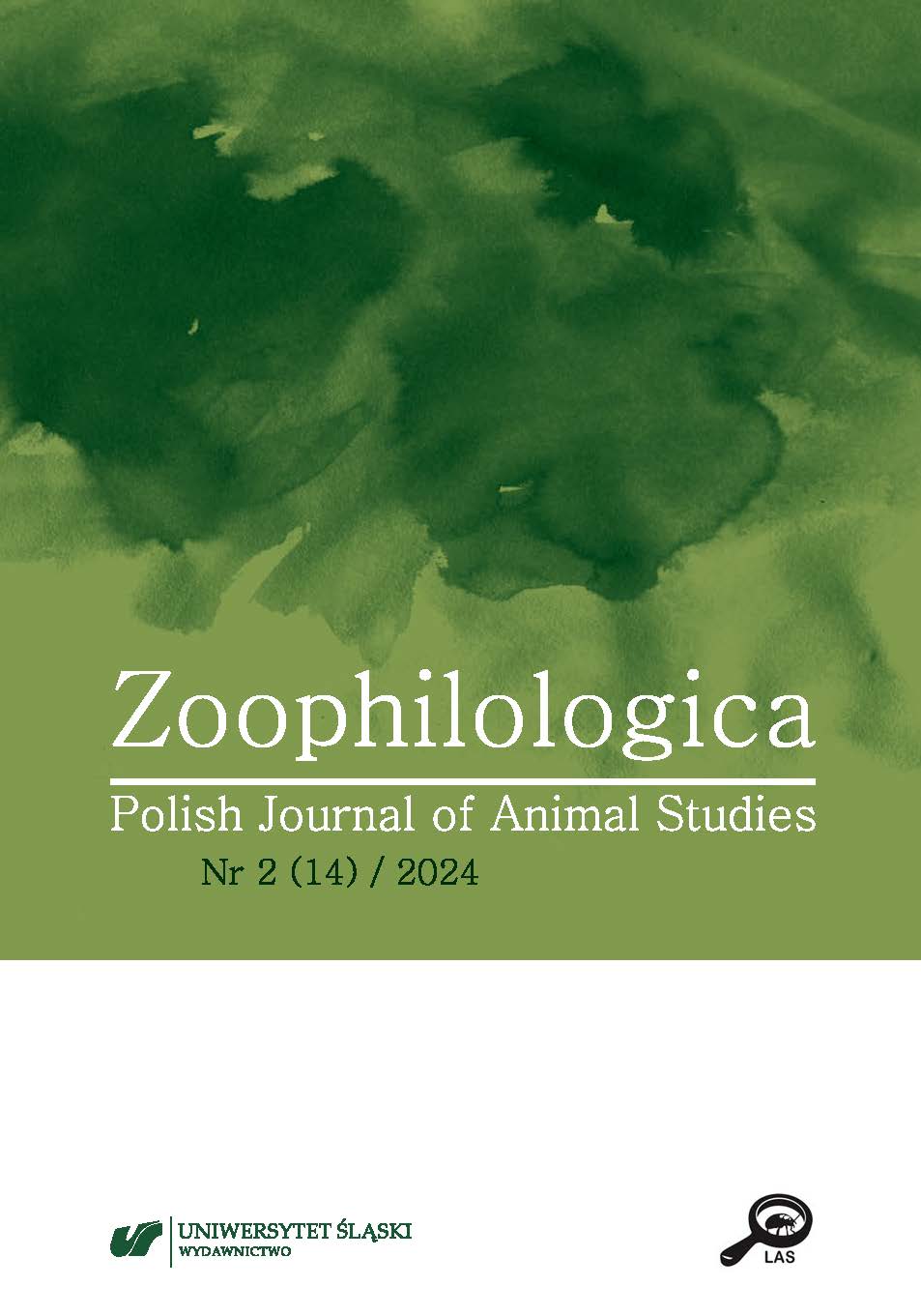
The article focuses on the changes taking place within zoos, which are losing their anthropocentric character. This is influenced by new, ethical approaches of people operating within these institutions. The analysis also touches on the awareness of discrimination against certain groups of people and its impact on the oppressive treatment of animals. The intertwining of the fates of humans and non-humans makes their fates similar. This is alluded to by authors of literary testimonies. With the help of their work and previous activities, they try to subvert, allowing for the change of meanings and humanization of human and animal subjects. The argument is based on Antonina Żabińska’s prose Ludzie i zwierzęta (1968) and Patryk Pufelski’s diary, Pawilon małych ssaków (2022).
More...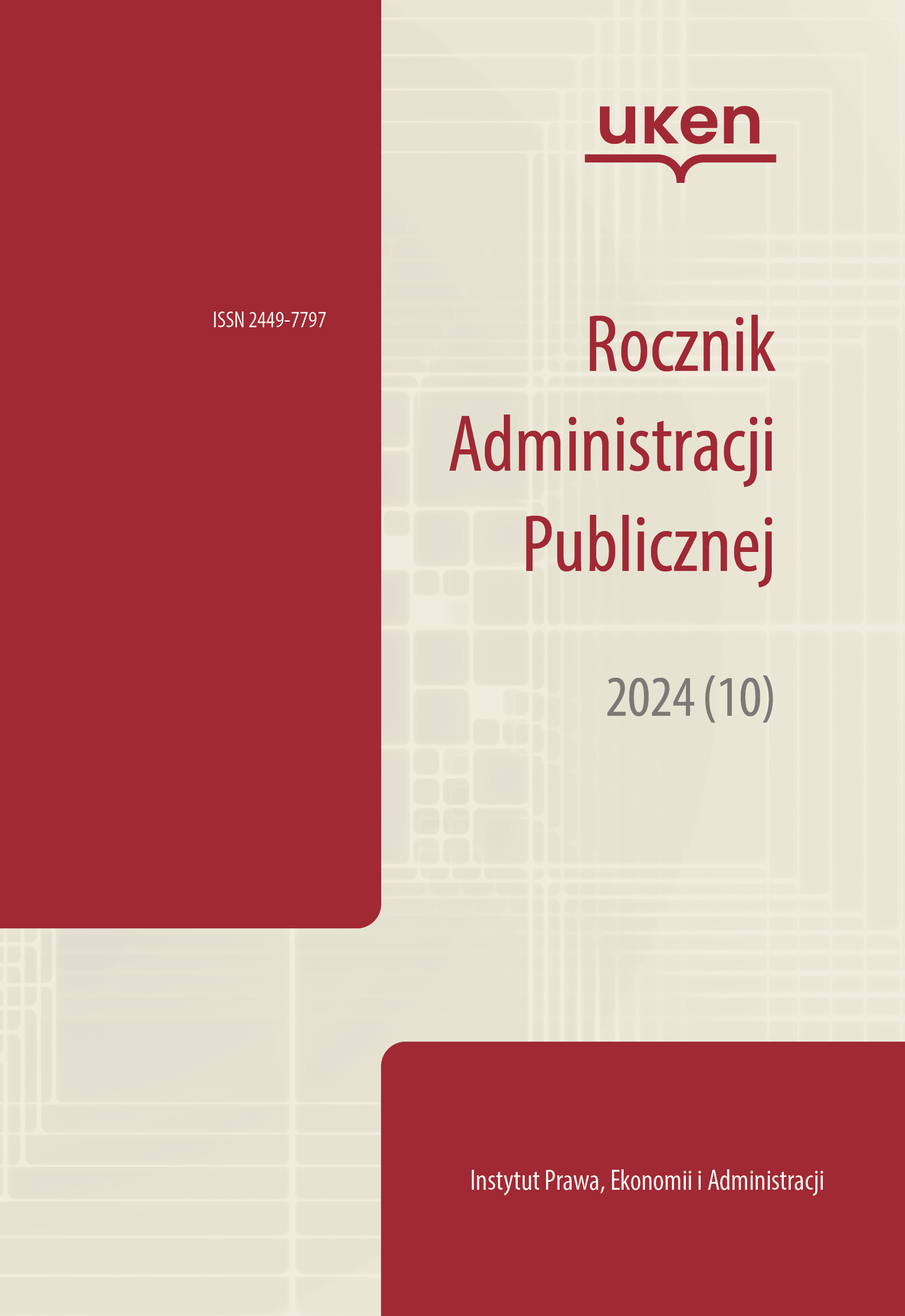
The European Union (EU) has faced a significant migration crisis over the past decade, driven by conflicts, economic disparities, and environmental changes. This paper examines the origins of the migration crisis, its consequences for the EU, and the subsequent changes in asylum law. By analyzing policy responses and their effectiveness, the paper aims to provide insights into the future directions of asylum law in the EU. The migration crisis in the European Union has been one of the most pressing challenges of the 21st century. This crisis, which peaked in 2015, has seen millions of people seeking refuge in Europe due to wars, persecution, and poverty in their home countries. The influx has strained the EU’s asylum systems, exposed weaknesses in its migration policies, and sparked political and social tensions across member states. This paper aims to analyze the origins of this crisis, its multifaceted consequences and the evolving legal framework for asylum within the EU.
More...